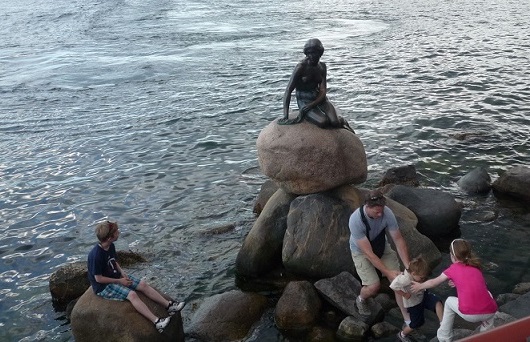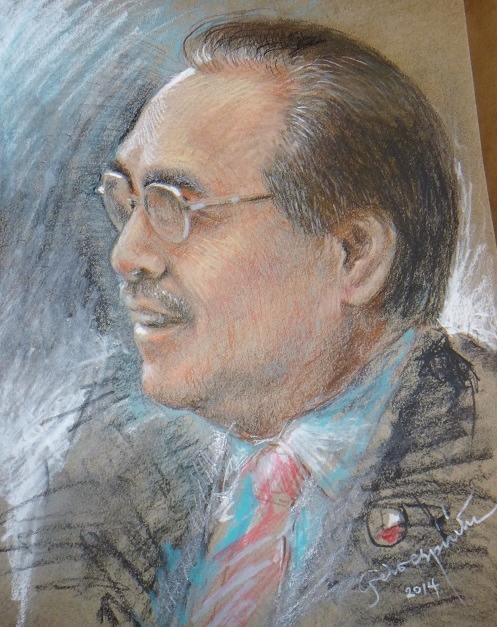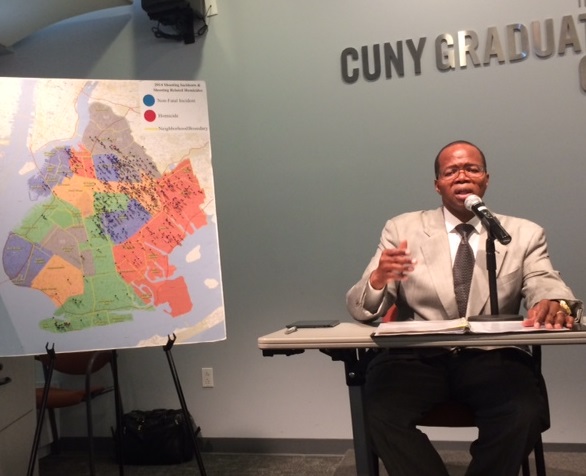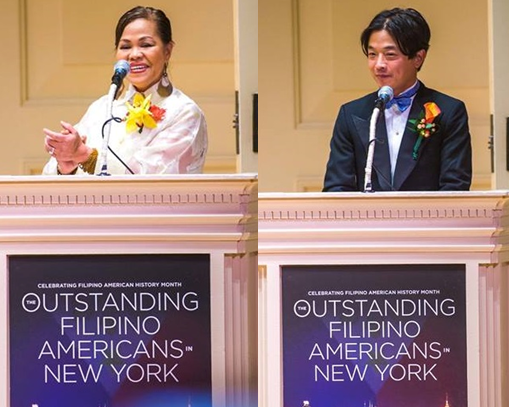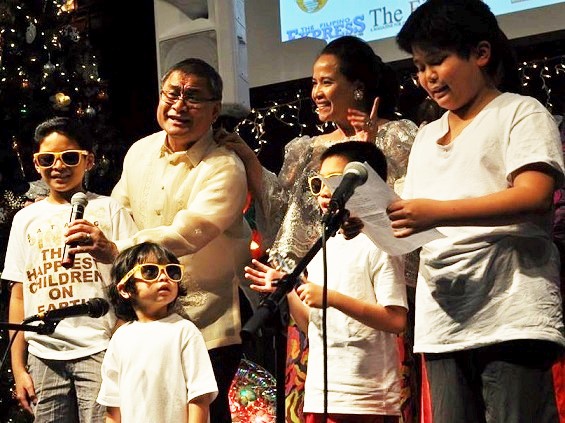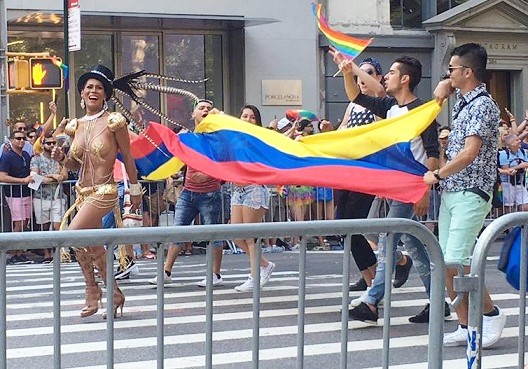Judge Benes Z. Aldana: 1st FilAm CEO of the National Judicial College
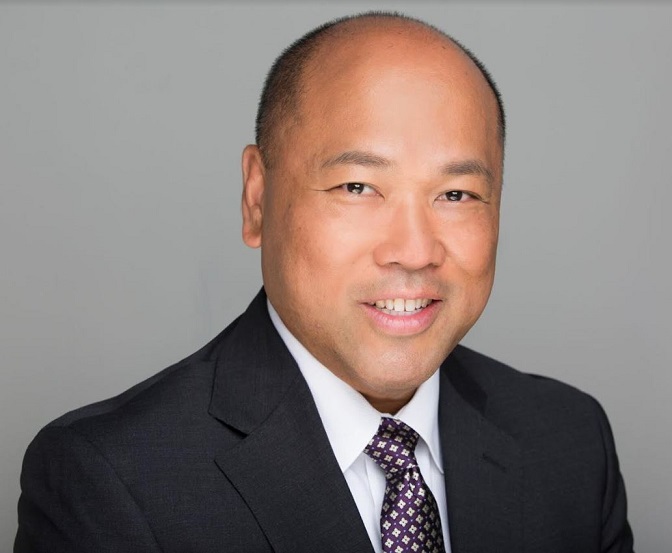
By Loida Nicolas Lewis
During the Asian American Pacific Islander Victory Fund in Washington, D.C. last spring, I was delighted to meet the president and CEO of The National Judicial College, Hon. Benes Zapanta Aldana (Ret.).
Benes is the first Asian Pacific American (Filipino), and second person of color, to lead the College, and before that he was the first Asian Pacific American to serve as chief trial judge of a U.S. military branch, the Coast Guard. He has led the College, which was founded in 1963 by U.S. Supreme Court Justice Tom Clark, since 2017.
Born with a twin brother, attorney Ace Aldana, in Angeles City, Pampanga, he and his twin and a younger brother, immigrated to the United States when he was 10. His father, a member of the U.S. Navy, was stationed in Maryland.
“My father’s parents, particularly my grandmother, are the reasons why we are here in the United States,” he said. “She was a nurse and came in during an immigration wave when the United States was recruiting nurses. She settled in Pasadena, California, and after that, petitioned my dad and his siblings to come to the United States. When my dad came to the United States, he joined the Navy, and then the rest of us came along.”
In eighth grade at Oak Harbor Junior High, north of Seattle, he wrote about what he wanted to be when he grew up. “A lawyer. And eventually, a U.S. senator.”
He is what you would call a born politician. Although new in school, he decided to run for vice president of the student government. One of the candidates complained that he couldn’t run because he was only in the eighth grade. But Benes, whose name rhymes with ‘tennis,’ pointed out to the government adviser that there was no such rule in the bylaws.
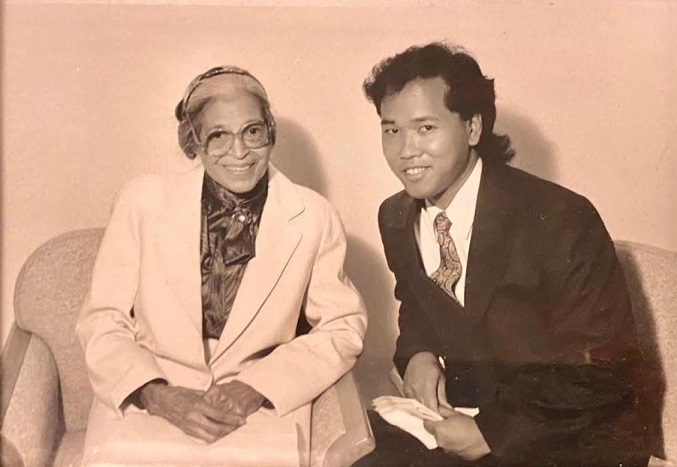
“As I was walking out the door after I filed the petition, I overheard (the other candidate) tell the other kids who were running, ‘He doesn’t know anybody; he’s not going to win.’ I just smiled to myself and went on.
“We gave our speeches at an assembly. I’ve always been a fan of President John F. Kennedy, so I channeled him in my message.”
Benes’s speech was a hit, and he won the vice presidency. The following year, he was elected president. After graduation, he attended Seattle University, which is an independent Jesuit university. Again, he ran for president of the student body and won.
“I was the first Filipino to be elected as president in the college’s history.”
During his sophomore year, he interned on Capitol Hill for Representative Cardiss Collins of Chicago.
However, his proudest moment in college, he says, was getting Rosa Parks, icon of the Civil Rights Movement, to speak at a leadership conference at the university that Benes was chairing.
Parks was most famous for refusing to give up her seat to a white bus passenger, as a local ordinance in Montgomery, Alabama, required. Key to his effort at getting her to Seattle University was securing a grant from the AT&T Foundation, which paid for her to spend an entire week in Seattle. Benes escorted Ms. Parks and her niece everywhere.
After
earning his law degree from the University of Washington School of Law in 1994,
he began his service with the Coast Guard, where he would hold many leadership
positions. As chief trial judge, he presided over felony trials throughout the
country while overseeing a traveling trial judiciary of 10 judges.
In the aftermath of 9/11, he was deployed as a legal adviser to the Department
of Defense Criminal Investigation Task Force in Guantanamo Bay, Cuba. There he
conducted criminal investigations against suspected terrorists detained by U.S.
forces. He also served as a trial attorney for the U.S. Department of Justice’s
Environmental Enforcement Section.
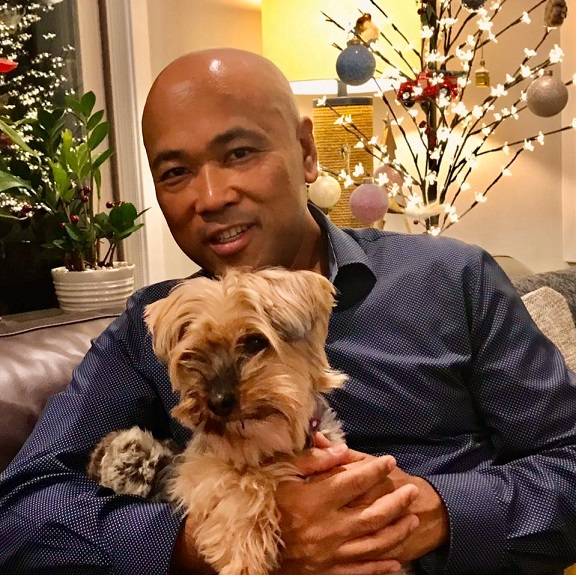
During his five years leading The National Judicial College, which is the nation’s oldest, largest and most widely attended school for judges, he has established a national reputation as a pioneer and force multiplier in the field of judicial education.
The College’s many accomplishments during his tenure include achieving record-shattering enrollment in 2020. That was driven by special online programming created in response to two major events: the coronavirus pandemic and the police killing of George Floyd, which sparked greater awareness of racial injustice.
In 2018, with funding from Hearst Foundation, the College launched a first-of-its kind Judicial Academy for lawyers who aspire to become judges. One of the goals for the Academy is to increase diversity in the judiciary, so applicants from diverse backgrounds are encouraged to apply. Ten alumni of the first two classes have already made it to the bench with a 12th running unopposed for election in fall 2022.
One of those who have made it to the bench is a Filipina, Christine Gonong, appointed a Court Commissioner on the Los Angeles County Superior Court, the largest unified trial court in the United States.
Judge Benes is named after Edvard Beneš, the president of Czechoslovakia from 1935 to 1938 and 1945 to 1948, who defied Hitler. When I asked him what inspires him to do what he does, he said, “To be an effective agent of change.”
“I am driven to leave the world a better place. It’s just part of my DNA.”
He is fond of a quote from Jackie Robinson, the trailblazing African-American baseball player who broke the color barrier in major league baseball. The Hall of Fame player once said, “A life is not important except in the impact it has on other lives.”
By that measure, Judge Benes Aldana has lived an important life because he has had a positive impact on so many lives.
© The FilAm 2022


